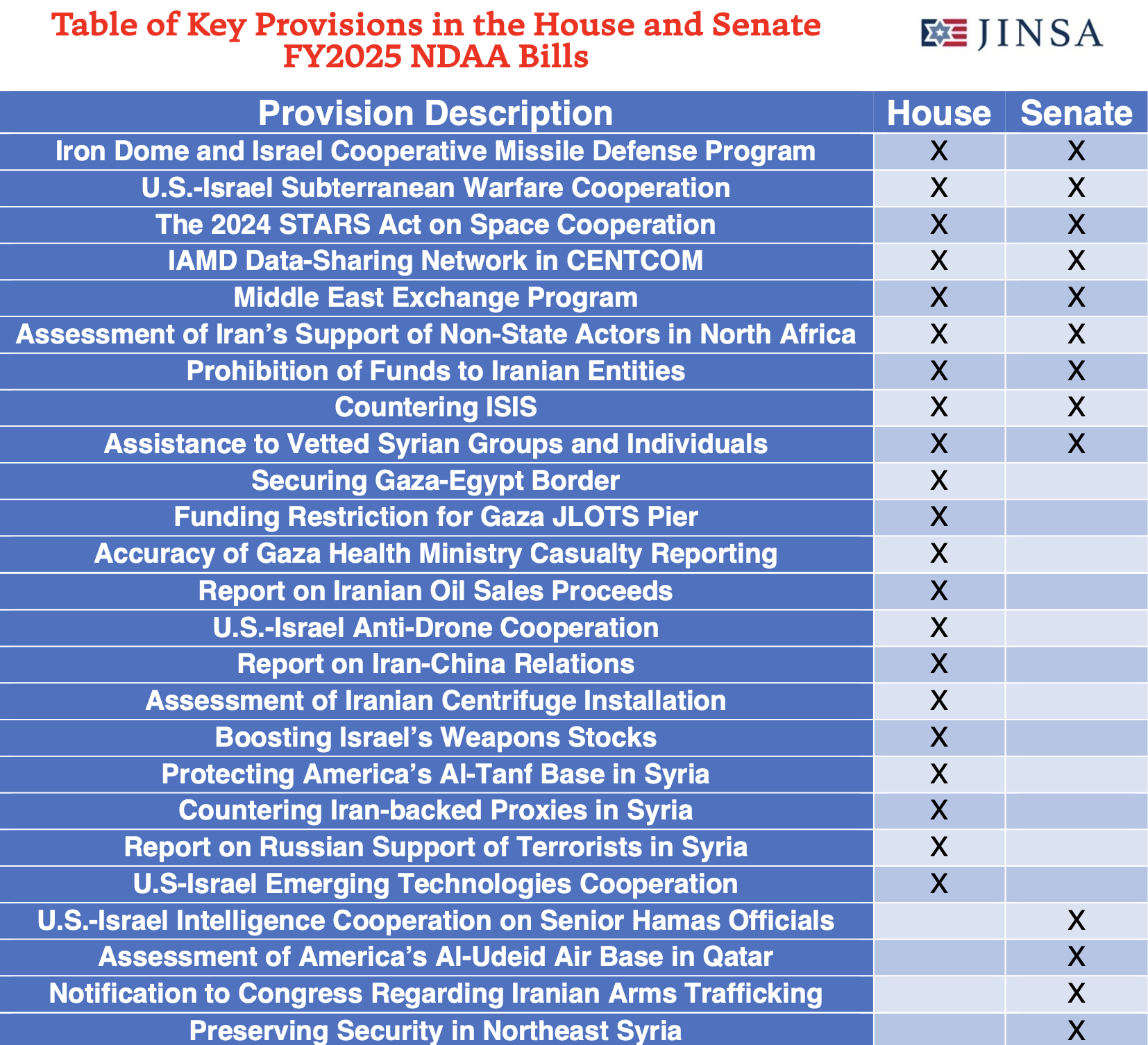A Long, Hot Summer for National Defense Authorization Act Negotiations Begins
The National Defense Authorization Act (NDAA) remains must-pass legislation for Congress each year due to its importance in both framing U.S. national security policy across a broad spectrum of issues on a bipartisan basis and enabling effective congressional oversight of the U.S. Department of Defense (DoD). After lengthy debate, the House of Representatives passed their version of the NDAA in a vote of 217-199 on June 14. On July 8, the Senate Armed Services Committee released their version of the NDAA. While there may still be some additional changes to the Senate bill when it is considered by the full Senate, the broad contours of the two bills are now clear. The two chambers will shortly begin the hard work of resolving hundreds of significant differences between their respective versions of the bill to get a consolidated final product to the president’s desk and signed into law.
There are dozens of key provisions to strengthen U.S. security in the Middle East that are under consideration in either both, just the Senate, or just the House versions of this year’s NDAA. Important provisions inspired or impacted by JINSA research this year include:
- Multiple provisions to strengthen American and Israeli subterranean warfare capabilities as recommended by JINSA’s recent The October 7 War: Observations report, such as by holding annual joint warfare exercises, bolstering joint cooperation to develop new technology to interdict terrorists and smuggling operations, and expanding such cooperation to maneuvering within tunnels more effectively;
- The “Space Technology and Regional Security Act of 2024,” or “STARS Act,” which requires DoD to develop a strategy and data-sharing agreement to protect allies and partners in the Middle East from hostile Iranian activities in space, consistent with JINSA’s U.S. Should Leverage Middle East Partners to Boost Space Capabilities brief; and
- Further improvements to integrated Air and Missile Defense (IAMD) efforts with U.S. allies and partners in the Middle East, including a provision to accelerate the development of an IAMD data-sharing network, which would mandate a strategy on how the United States and its regional allies and partners can leverage existing and new technologies to increase the speed and precision with which data is shared and used to counter Iran-backed missile and drone attacks, in line with recommendations in JINSA’s Build it and They Will Come report.
Click here to read the NatSec Brief.
